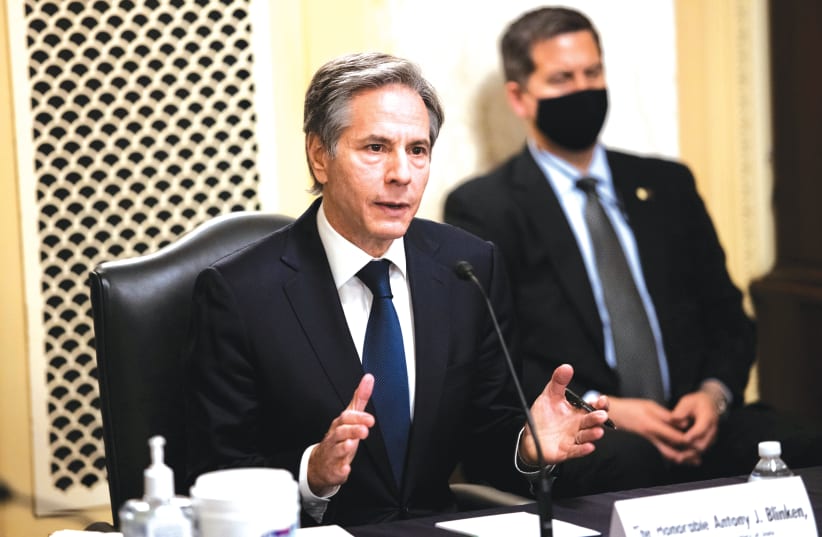In this context, the new administration has to determine whether to adopt the UN-mediated framework that is currently on the table for a settlement in Yemen, which formally divides the country between the internationally-recognized government and the Houthis. While there is no denying that the Saudi war in Yemen has fueled a humanitarian catastrophe, rushing into a settlement in the current state of play could easily backfire.
First, the crisis in Yemen is much more than a Saudi–Iranian proxy battle. The country’s violent disintegration is an outcome of a plethora of domestic divergences, which seem to be left out of the UN peace process that focuses on reconciliation between the Houthis and the Saudi-backed government. In fact, this government represents no more than a hodgepodge of conflicting armed parties, whose loyalty to President Mansur Hadi is unsteady.
One example is the Southern Transitional Council – an assembly of tribes from South Yemen who had been marginalized since the country’s unification in 1990 – which in recent years has repelled the government forces from its domain and proclaimed autonomy (shelving this vision only under international pressure).This sort of grievance that is shared by many local groups, together with the government’s impotence to enforce its authority, is a recipe for continuing the internal struggle for power and resources long after a potential Saudi–Houthi settlement. In fact, a Saudi withdrawal is liable to aggravate the government forces’ breakdown and leave Yemen up for grabs among various groups.
This would play into Iran’s hands. As the Houthis have remained the most consolidated Yemeni actor throughout the war, a ceasefire in the current formulation would clear the way for them to wrest further swaths of land from the fragile government-aligned forces. (In the eve of onset of the Saudi war in 2015, the Houthis were charging toward the Gulf of Aden and the Bab al-Mandab Strait, the gateway to the Red Sea).
INTRINSICALLY, THIS will impose Iran’s clout on these territories: the Houthis’ alignment with the Islamic Republic (even if it was bolstered as a response to the Saudi intervention) is a fait accompli; the tie-breaking weapons that the Shi’ite group received from Tehran did not come without a return in the form of an Iranian foothold in Yemen. In October, indeed, Iran appointed for the first time an ambassador to the Houthi administration in Sanaa, choosing for the post an Islamic Revolutionary Guards officer, thus implying its desire for hands-on control and guiding in the happenings in Yemen.
It will not stay in Yemen. One argument that is often echoed is that the Houthis are a merely Yemeni issue and do not harm anyone outside of the Yemen conflict. This is not entirely wrong. The Houthis’ hitherto cross-border attacks – whether airborne strikes on oil facilities in Saudi Arabia or maritime attacks targeted at Saudi-led coalitions’ vessels – can be regarded as retaliation to Riyadh’s intervention in Yemen.Nevertheless, the evinced success of such Houthi targeting, coupled with Iran’s growing sway over the group, gives Tehran a powerful asset that is sure to be utilized outside of the Yemen conflict (just as with other by-proxy military platforms that the Islamic Republic has fostered across the Middle East).
A recent report indicated that Iran outfitted the Houthis with suicide drones, which have a range that covers both Saudi Arabia and Israel, in addition to cruise and ballistic missiles; the mere capability of an Iranian proxy to cripple the global oil market by striking the Saudi facilities, or to disrupt maritime transportation via the Bab al-Mandab Strait, will be an effective deterrence factor of Iran via-a-vis the US and the West, giving the Iranians another card ahead of reviving nuclear negotiations.
There is much temptation to upend Trump’s embrace of the Saudi leadership, but as the situation in Yemen stands, dictating that Riyadh and the Hadi’s government accept the UN settlement framework may not be beneficial whatsoever.
The other culprit of Yemen’s debacle, the Houthis, is not going anywhere, and it is the same with the other domestic rifts that Yemen finds itself locked in. Bringing the Saudi campaign to a close could, however, can be fruitful if it is one component in a US policy approaching Yemen itself (rather than part of the policy toward Saudi Arabia).
Such an agenda may include: sustaining the implementation of the joint-rule accord between the Hadi government and the Southern Transitional Council in order to unify the anti-Houthi bloc; equipping the Hadi government with the economic and military support required to establish itself as an independent force, detached of Saudi Arabia and counterweighting the Houthis; promoting a broader UN peace process that includes more local elements, thereby addresses the discontent that is at the bottom of the Yemen’s turmoil; providing a humanitarian effort to reconstruct Yemen’s relatively stable regions in order to minimize their susceptibility to reemerged violence and to the Houthis’ influence; and undertaking a determined endeavor to hinder the delivery of further advanced arms from Iran to the Houthis that could change the balance of power in Yemen’s frail regions.
Pursuing a political settlement in Yemen without heeding these obstacles risks the situation turning from bad to worse.
The author is a Middle East and security analyst.
